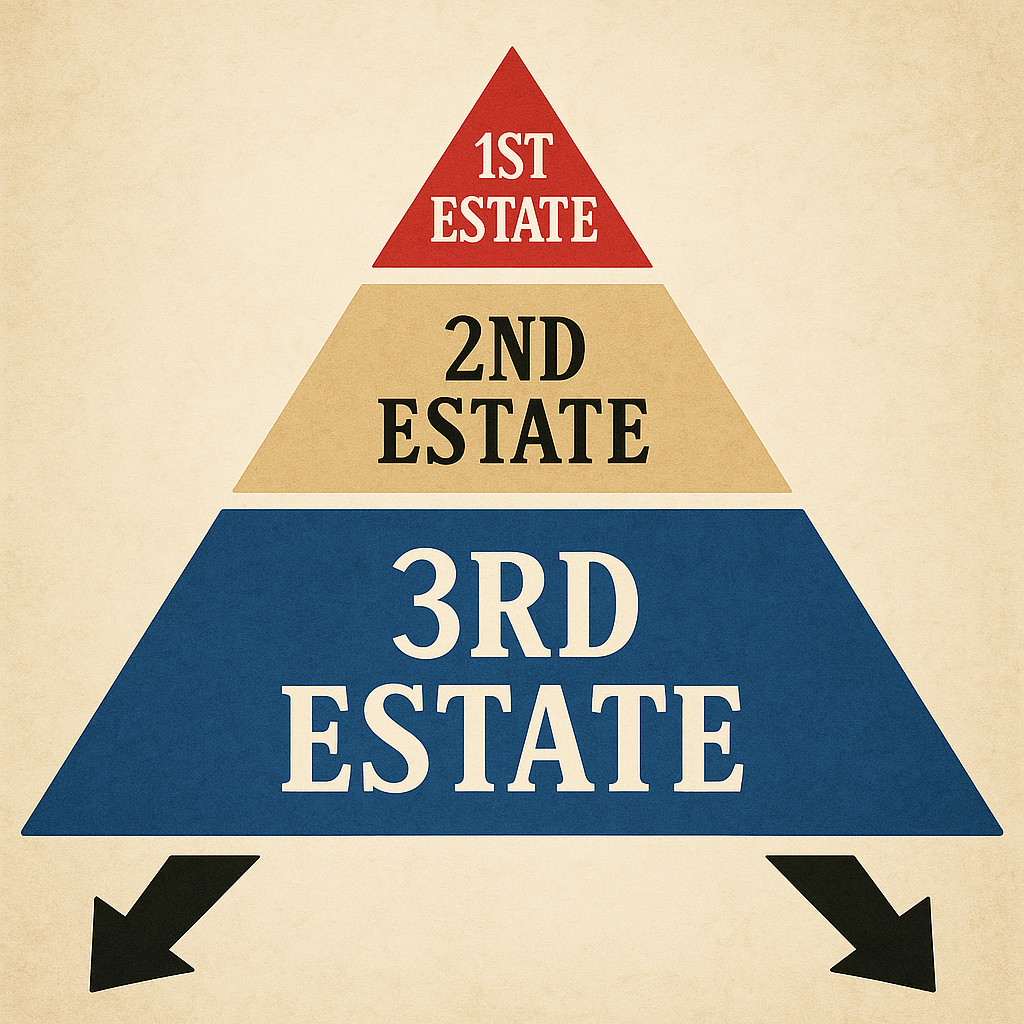Chapter 1: The World Before 1789 – Why France Exploded
1.1 The Kingdom of Louis XVI: A House of Cards
In 1774, a 20-year-old Louis XVI inherited a kingdom drowning in debt. But his crown was heavier than he knew.
Detailed Explanation:
- France in the 18th Century:
France was one of Europe’s richest nations, but wealth was concentrated in the hands of the clergy and nobility. The monarchy, centered at the glittering Palace of Versailles, spent lavishly on wars (like supporting the American Revolution) and luxuries, while peasants starved. - Debt Crisis: By 1789, France’s debt soared to 2 billion livres. To pay for this, taxes on the 3rd Estate (commoners) increased, sparking anger.
- Subsistence Crisis:
- Population Boom: From 23 million (1715) to 28 million (1789), leading to food shortages.
- Natural Disasters: In 1788, a severe hailstorm destroyed crops. The winter of 1788–89 was the coldest in decades, freezing rivers and halting flour mills. Bread prices skyrocketed, and starvation riots erupted.
Key Terms:
- Livres: France’s currency.
- Tithes: 10% tax paid to the Church.
- Corvée: Forced labor where peasants repaired roads for free.
1.2 The Three Estates: A Pyramid of Inequality
Imagine a society where your birth decided your taxes, power, and even your dignity. Welcome to 18th-century France!
Detailed Explanation:
- 1st Estate (Clergy):
- Power: Owned 10% of France’s land, collected tithes, and lived in luxury.
- Privileges: Exempt from taxes, answered only to the Pope.
- 2nd Estate (Nobility):
- Feudal Rights: Collected taxes (like taille) from peasants, enjoyed hunting rights, and paid no taxes.
- Lifestyle: Lived in châteaux, wore silk, and attended the king’s court.
- 3rd Estate (Commoners):
- Composition: Peasants (80%), artisans, lawyers, doctors, and merchants.
- Burden: Paid taxes to the king, Church, and nobles. A peasant’s typical day:
- Worked on feudal lands (corvée).
- Paid taxes on salt (gabelle), soap, and even windows!

1.3 The Powder Keg: Inequality + Hunger = Revolution
By 1789, France was a tinderbox. All it needed was a spark.
Detailed Explanation:
- Rising Middle Class (Bourgeoisie):
- Who Were They?: Educated merchants, lawyers, and officials inspired by Enlightenment ideas.
- Demands: Merit-based rights, not birth privileges. They asked, “Why should talent bow to titles?”
- The Estates-General of 1789:
- Last Meeting: 1614! Louis XVI called it to approve new taxes.
- Conflict: The 3rd Estate demanded “voting by head” (1 person = 1 vote), but the 1st/2nd Estates refused.
- Result: The 3rd Estate walked out, declared themselves the National Assembly, and vowed to write a constitution.
Quote:
- “The people are driven to despair. Bread is beyond their reach.” – A Parisian worker’s diary, 1789.
1.4 Why Should You Care?
- Legacy: The revolution taught the world that oppression breeds rebellion.
- Modern Parallels: Think of protests against inequality today – the same cries for fairness echo.
The World Before 1789 – Why France Exploded Summary
- Key Idea: France’s inequality, debt, and hunger created a revolutionary storm.
- Important Dates:
- 1774: Louis XVI becomes king.
- 1788: Hailstorm destroys crops.
- 5 May 1789: Estates-General meets.
Chapter 2: The Three Estates – A Society Divided